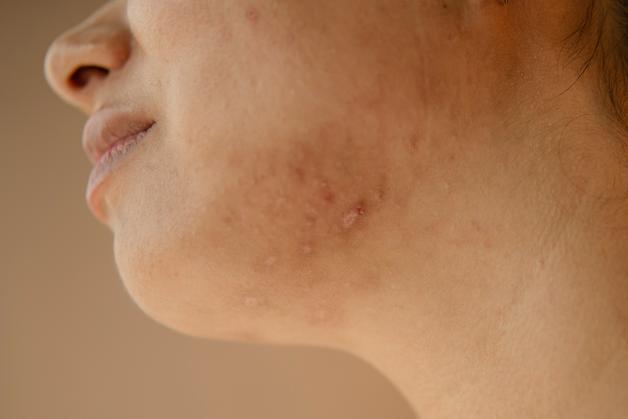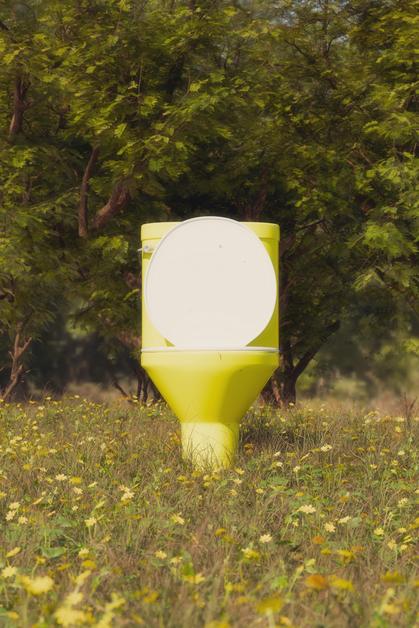Feeling the first signs of pregnancy can turn your world upside down—rising anticipation, uncertainty in every flutter, and then, unexpectedly, persistent itching and red, aggravated patches appear. Pregnancy eczema does not politely ask for its place at your table; it often barges in, demanding your attention at the least convenient moment. For many parents, this skin condition is an enigma: Why now? Could this harm my baby? Will this uncomfortable sensation ever subside? Questions spiral. Sleep might suffer. Comfort may feel like a distant memory. Yet, amidst hormone surges and immunologic shifts, there are steps to restore not only physical ease but peace of mind. Throughout this exploration, discover what research reveals about pregnancy eczema—from medical explanations, prevention, and practical comfort, to the scientific rationale behind every recommendation. Parents deserve answers grounded in clarity, empathy, and evidence.
What Distinguishes Pregnancy Eczema?
The word pregnancy eczema captures a range of experiences—some parents develop it suddenly for the first time, others feel existing eczema ramp up with new intensity. Unlike other types of dermatitis, pregnancy eczema is intimately linked to the hormonal symphony of gestation. Fluctuating estrogen and progesterone orchestrate immunological adjustments designed to protect the growing fetus, yet this remarkable adaptation transforms skin sensitivity. Suddenly, even common materials or slight warmth may provoke ferocious itching, and red inflammatory lesions might form in patches that shift and stretch along belly, arms, or breasts.
Is this a new allergy? Not always. You might have no previous history whatsoever. Family background can stack the deck, but unpredictability rules—no two pregnancies promise identical symptoms. While the discomfort is real, the risk to the baby remains, in most cases, insignificant—except in rare associated conditions needing medical intervention.
Unraveling the Causes: Science Inside and Out
Behind every flare, a story unfolds in the immune system. Pregnancy prompts what’s known as a Th2-dominant environment—a shift allowing your immune cells to tolerate the baby—but this metabolic choreography often increases skin barrier dysfunction and sensitivity to familiar or previously harmless stimuli. Cytokine activity changes, altering the pathways that typically keep skin inflammation in check.
External contributors? Dust mites, allergenic proteins, synthetic fabrics, and even the gentle pressure of a favorite pair of leggings can spell irritation. Stress, a nearly universal companion during pregnancy, acts as its own immunologic amplifier, fueling both the perception of itching and the activation of skin neuroinflammation. Add in heat, seasonal pollen, and environmental pollution—each pushes already reactive skin closer to the tipping point.
Is there a genetic destiny? In part—risk increases with a family track record of atopic conditions (like asthma or allergic rhinitis), but many parents with no background find themselves surprised by a sudden eruption of xerosis (extreme dryness) and pruritus (itching).
Recognizing the Signs: Subtle To Spectacular
What does pregnancy eczema look and feel like? You might notice persistent, unyielding itching, especially at night. Redness, scales, or rough textures map new territories across elbows, knees, underarms, legs, hands, or face. Some experience small blisters or burning, others simply irritation and dryness. For a few, the abdomen—or even the skin stretching over growing breasts—becomes a hotspot.
Occasionally, apparent eczema mimics more serious disorders. Intense, generalized itching without any apparent rash, especially across palms or soles, sometimes signals a liver issue—intrahepatic cholestasis of pregnancy—where bile flow becomes impaired, demanding swift evaluation. Similarly, rapidly spreading blisters may indicate a rare, pregnancy-specific skin disease (pemphigoid gestationis or polymorphic eruption of pregnancy), each with its own management.
When should a parent worry? If lesions become painful, oozy, or crusted—or if well-being is significantly affected—it’s time to seek advice. Early recognition and intervention almost always keep things manageable and promote a smoother experience.
Risks for Parent and Baby: A Balanced Perspective
Does pregnancy eczema endanger your baby? For most, the answer is reassuring: mild or moderate eczema does not translate to fetal risk. The true burden lands on the parent—disrupted sleep, reduced quality of life, and a persistent urge to scratch that might erode well-being or even lead to secondary bacterial infection if skin integrity is breached.
On rare occasions, untreated or severe eczema can allow Staphylococcus aureus or herpes simplex virus to penetrate, demanding antibiotics or antiviral therapies. Still, even if a parent has profound eczema, there is no absolute guarantee the child will inherit the condition—though the atopic march (increased risk for eczema, asthma, or hay fever) is well-documented in offspring.
Diagnosing Pregnancy Eczema: Why Precision Matters
Usually, pregnancy eczema can be identified through a careful clinical exam; rarely, blood tests are needed to exclude liver dysfunction or serious infection. What merits prompt attention and perhaps laboratory checks? Persistent itching paired with visible changes, especially if associated with systemic symptoms like jaundice, fever, or fatigue; widespread, rapidly evolving blisters; or lesions that fail to respond to optimal care.
Why so thorough? Misidentifying eczema when the true culprit is a metabolic or infectious complication can jeopardize both parent and baby. Prompt, accurate diagnosis paves the way for not just relief, but genuine reassurance.
Prevention: The Power of Everyday Decisions
Can you outmaneuver pregnancy eczema altogether? Sometimes—not always. However, the power of small, deliberate choices is immense:
- Opt for lukewarm, short showers with soap-free cleansers or gentle, fragrance-free oils to safeguard the skin barrier.
- Moisturize, morning and evening, with a thick, hypoallergenic emollient formulated to reduce water loss and support epidermal regeneration.
- Reach for soft, breathable clothing—think cotton or linen—and use unscented laundry products to shield against irritant residues.
- Bypass harsh substances and avoid household cleaners with strong solvents.
- Stay hydrated, enjoy a balanced nutritional profile rich in omega fatty acids, and regularly manage stress via walks, prenatal yoga, or brief meditative pauses.
The science backs up these common-sense approaches: emollient therapy and gentle routines both minimize flares and foster resilience.
Treatment and Comfort: Safe Paths Through Pregnancy Eczema
Here the balance seesaws: How to soothe irritated, reactive skin while protecting the unborn? The medical consensus—reflected in dermatological guidelines—endorses:
- Daily use of thick, fragrance-free emollient creams after every wash to trap moisture and diminish barrier loss.
- For acute areas, judicious application of low or medium potency topical corticosteroids (such as 1% hydrocortisone) under the supervision of a provider—short-term, targeted, and never applied to extensive surfaces.
- Cool compresses quell inflammation and provide rapid relief when itching spikes unpredictably.
- In select, severe cases, calcineurin inhibitors or UVB phototherapy have proved effective, but the former must be reserved for specific, small regions and only with expert input.
Infection? Redness, oozing, or increased pain points to possible secondary infection—a situation where topical or even oral antibiotics may step in.
Conversely, oral retinoids, methotrexate, and potent systemic immunosuppressants are strictly avoided. Biological agents such as dupilumab are reserved for exceptional cases, with hospital-based oversight. Over-the-counter remedies from herbal or alternative medicine lack reliable safety evidence—discussion with your doctor is always advised.
Environmental changes—humidifying living spaces, clipping nails, and keeping routines predictable—add another layer of daily protection.
Breastfeeding With Eczema: Solutions and Safeguards
Will pregnancy eczema disrupt your goal to breastfeed? Rarely, although irritation can provoke nipple fissures or soreness. Prevent flare-ups on sensitive skin using compatible, medical-grade lanolin or plant-based emollients (like calendula), and dry the area gently after every feed. If cracks appear, temporarily expressing milk can speed healing—no need to abandon breastfeeding altogether.
Topical corticosteroids can be used carefully away from the areola—supervised by a professional—ensuring no residue transfers to your baby. Most commonly prescribed barrier creams and moderate topical steroids have favorable safety profiles during lactation, with proper technique.
Untreated, severe eczema might increase the risk of bacterial skin infection, yet the skin condition itself does not pose direct danger to your nursing infant. Will your baby inherit eczema? Statistically, risk increases, but many infants escape the atopic pattern altogether—a reminder that inheritance is probability, not fate.
Lowering Eczema Risk For Your Baby: Practical Steps
Is there a way to give your child the best chance at clear skin? Science gives a few compelling options:
- From birth, gently moisturize your newborn’s skin with paediatrician-endorsed emollients.
- When introducing solids, diversify cautiously around 5-6 months—no evidence recommends delaying or excessively restricting foods unless medically indicated.
- Exclusive breastfeeding for the first months, if feasible, aligns with protective recommendations.
Importantly, pregnancy eczema is neither infectious nor dangerous for your infant, and parental self-care elevates the entire family dynamic.
Living Well: Everyday Tips for Balanced Days and Nights
A gentle routine nurtures both skin and spirit:
- Replenish the skin’s moisture reserves, morning and night.
- Choose loose, airy fabrics—cotton or linen excel here—for less friction and irritation.
- Pivot toward hypoallergenic cleansing products at every opportunity.
- Take micro-breaks throughout the day, not merely to rest but to recalibrate—stress managment is a potent tool in your arsenal.
- Adjust the physical environment: cool, humidified air, minimal temperature swings, avoidance of sweat traps.
- Tap into cold therapy—a simple compress soothes nighttime itching and reduces temptation to scratch.
- Cultivate a consistent bedtime ritual: soft music, mindful breathing, perhaps a chapter of a favorite book.
- Maintain close ties with your healthcare team—early intervention nips complications in the bud and diminishes future flare-ups.
Regular, individualized support smooths out not only the skin, but also doubts, fatigue, and emotional turbulence.
When to Seek Urgent Medical Attention
A handful of scenarios demand prompt action. Escalating, generalized itching especially on palms, soles, or abdomen—without evidence of rash—frequently signals hepatic dysfunction, such as cholestasis; this requires rapid evaluation. Similarly, expanding, painful, red or draining skin suggests infection or unusual pregnancy dermatoses—both merit urgent assessment. When traditional management falters, new blisters form, or systemic symptoms develop—don’t hesitate; the path to effective adjustment starts by reaching out.
Creating a Network of Support
The itch may be physical, but the impact reverberates through mood, resilience, and confidence. The worry of passing on eczema, the frustration of sleepless nights, or embarrassment at visible plaques—these responses are entirely normal. Listening to other parents who have navigated pregnancy eczema provides comfort and practical tips: consistent emollient use, self-compassion, patience, and balance in treatment choices. Healthcare professionals can help curate a routine that fits your life, not just your symptoms.
Safe, evidence-based approaches work best when paired with kindness—the support of family, friends, community, and a reliable care team.
Key Takeaways
- Pregnancy eczema is common, can debut for the first time during pregnancy, or flare existing eczema under the influence of hormonal changes and immune shifts.
- Proactive skincare, avoidance of irritants, and stress reduction provide solid preventive and comforting strategies.
- Safe, effective treatments include emollients and (when indicated) topical corticosteroids—always under medical guidance.
- Fetal risk is minimal—skin symptoms reside with the parent, not the unborn child. While atopic risk rises incrementally, inheritance is never absolute.
- Early diagnosis and an individualized treatment plan keep things predictable and manageable. Constant self-observation and rapid medical consultation matter if new or severe symptoms emerge.
- Emotional comfort is as significant as physical relief; trusted routines and open communication with healthcare professionals foster better outcomes.
- Access further advice, free pediatric health questionnaires, and continuous guidance on the Heloa app. Parenting is demanding—no one should have to guess their way through challenges like pregnancy eczema when reliable help is just a tap away.
Questions Parents Ask
Can pregnancy eczema develop even if I’ve never had eczema before?
Absolutely. Even if you have never experienced eczema previously, the hormonal changes and increased skin sensitivity during pregnancy may lead to eczema appearing for the first time. This experience can be surprising and sometimes unsettling but, rassurez-vous, it is quite common for pregnancy to trigger eczema in people without any prior history.
Is it safe to use creams or medications for eczema while pregnant?
When dealing with pregnancy eczema, many parents wonder about treatment safety. Most gentle, fragrance-free moisturizers are considered safe. For more intense symptoms, mild to moderate topical steroids are typically used with medical supervision. You can always discuss every option with your healthcare provider to find what suits you best and supports both your comfort and your baby’s safety.
Will my pregnancy eczema disappear after giving birth?
In many cases, pregnancy eczema improves or even resolves after the baby’s arrival, as hormone levels return to their pre-pregnancy state. Sometimes, however, the skin can remain more sensitive for a short period postpartum. There are always solutions to manage symptoms and, le plus souvent, the discomfort fades with time. If troubles persist, your doctor can help you explore additional gentle care strategies.









